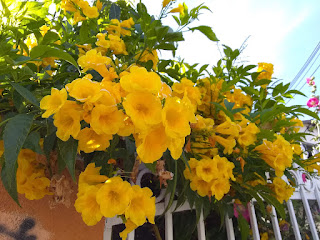Flowering
In my college years, I conceived a love for a young man I had gone out with a few times and held on to it despite little interaction with him for a good year and a half. He was pre-seminary, convivial and spent much of his time at the college radio station. I thought he was perfect for me. My parents planned to come up and meet him! But just before they did, he broke off with me. This did not stop my longing for him, of course. But I finally learned that a girl who also worked at the radio station had captured his heart.
This anguish did not hurt me. Within a couple of years, I realized that I was not cut out for the kind of future this man was headed toward. And today, noting that he has been a pastor in Door County, Wisconsin, for succeeding years, I am still not sorry. It was an instance of the phenomenon I have noticed that I usually fail at what I shouldn’t have wanted in the first place!
When I look back, I can see other instances of my reactions to intellectual situations in which the future proved more interesting than anything I could have imagined at the time. For instance, there was the Dostoyevsky/Tolstoy question. In my college survey courses, we were required to read Crime and Punishment. I resisted. I must have read enough to respond as I was supposed to. Even without the internet to summarize it for me, the book’s plot and themes were everywhere around.
But that was the problem. Dostoyevsky’s tortured story of sin, punishment and eventual grace were so familiar I did not want to hear it. While at college, I had no notion whatsoever of Tolstoy. His quiet confidence that the kingdom of God could be found within you was not what our Lutheran college was prepared to teach.
More than this, it turns out that the particular structure of my mind and what I think about is much more in tune with Tolstoy than Dostoyevsky. Tolstoy writes the world, describing and embracing everyday reality, whereas Dostoyevsky probed the interior lives of difficult people, giving them an imaginative reality which fascinates some readers. Just not me.
A few years after college, I had the incomparable experience of hearing War and Peace read by Alexander Scourby on 69 long-playing records. His mesmerizing voice reading Tolstoy’s wonderful story stayed with me long after my vision problems cleared up and I was able to leave home. (I find I am not alone. A blogpost describes a reader in Spain searching for these recordings and listening to them during the pandemic. You can get a taste here.)
I can think of many other examples, but you get the idea. The future comes toward us, it seems, showering blessings our response to which makes us into the particular people we were meant to be. Nonlinear dynamic systems, or chaos theory, describes this evolution as a series of attractors which we synthesize into our lives, or not. I am no mathematician or scientist, but I am responsive to thinkers, such as Daniel Schmachtenberger here, who include in their understanding and language this new way of looking at the world. Chiefly it addresses change, and how self-organizing systems continue to evolve, making new kinds of order. It isn’t that we can get to the bottom of it. It remains a mystery, but it does sweep aside static and deterministic views, while reassuring us that the values and constants of earthly life continue.
Frederic Turner, in The Culture of Hope [1995], describes the soul in this new understanding: “The soul, not the old a priori essence, but no less real for being the emergent attractor of a synthesizing process, will step out from behind the self as the true centre of human health.”
It is certainly time to look back at the emergent attractors, the people and ideas which have shaped the arc of my life, and are still shaping it. This includes places, such as the city in which I now live.
At a recent book group discussion, with most of the participants long-time residents of Los Angeles, one said he had heard it described as a “city on the edge of history.” LA doesn’t hand itself to you as some places do. It hasn’t figured itself out yet. Openness and change are part of its character. When out in LA you are always scanning the horizon, looking for trouble, yes, but also the unusual. It is what elicits the profoundly ironic, but also sincere reaction shown in Randy Newman’s song “We love LA.” LA doesn’t care what you think of it. It is open, unpretentious. It just doesn’t have anything to prove.
No amount of guessing by my very young self could have predicted I would find myself here, at the edge of the Pacific, happily married, accomplished (at least in my own terms), and intellectually free. My inner self has come to terms with my external self. As a writer, I am incorrigible, I can’t help it! But I try to use my work to point to the ways people can open themselves to the world, to unfold their petals, their leaves, in the most natural way. Which is my wish for you, dear Reader.



Comments
Post a Comment